Political Uncertainty Grips France as Macron Accepts Attal's Resignation
The political landscape in France has been thrown into disarray following President Emmanuel Macron's acceptance of Prime Minister Gabriel Attal's resignation. This significant development comes in the wake of a snap election that failed to yield a decisive outcome, leaving the nation in a prolonged state of uncertainty. Attal's resignation marks a critical juncture in French politics, highlighting the challenges of governance amid a fragmented National Assembly.
With the resignation now official, Attal's cabinet will operate in a caretaker capacity until a new government is formed. This interim arrangement is crucial for maintaining governmental continuity and ensuring the smooth operation of state affairs. However, the task of forming a new government appears daunting, given the current political deadlock. The election results revealed a deeply divided National Assembly, with no single party or coalition emerging as the clear winner.
The Aftermath of an Inconclusive Election
In the recent snap election, the New Popular Front (NFP), an alliance of leftist and environmental parties, secured 193 out of 577 seats, making it the largest grouping in the National Assembly. However, internal conflicts within the NFP have thus far prevented the coalition from rallying around a consensus candidate for the prime ministerial role. This internal discord underscores the complexities of coalition politics and the challenges of achieving unity among diverse political factions.
Macron's allies finished second in the election with 164 seats, while the far-right National Rally captured 143 seats, reflecting a significant shift in the political dynamics. The gains made by the far-right highlight the growing discontent among segments of the electorate, adding another layer of complexity to the already fraught political environment.
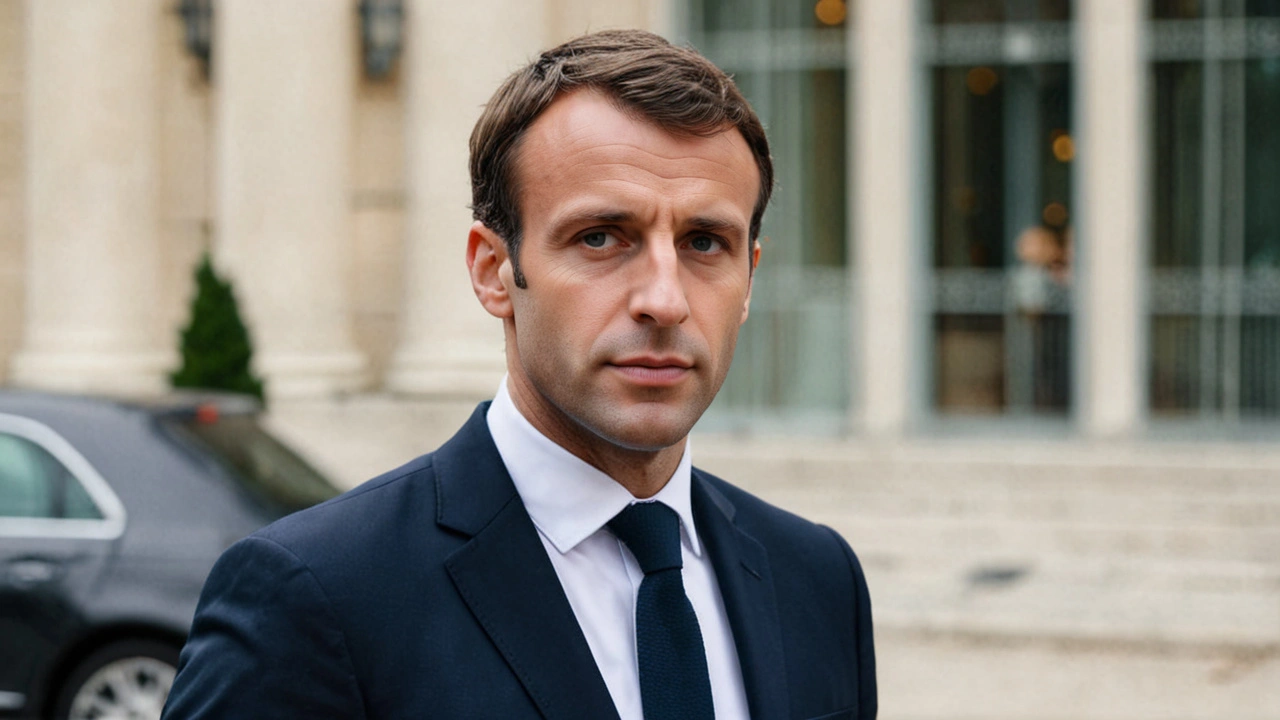
Macron's Call for Unity
Amid the unfolding political drama, President Macron has called for unity among mainstream parties to forge a governing coalition. Specifically, he has emphasized the need to exclude both the far-right and hard-left factions from such a coalition. This call for unity seeks to stabilize the political situation and enable the formation of a functional government. However, achieving this unity may prove challenging, given the deep-seated divisions and conflicting ideologies among the various parties.
Macron's decision to retain Gabriel Attal as caretaker prime minister, at least until after the upcoming Paris Olympics, has sparked controversy. Critics argue that this move undermines democratic principles, while supporters contend it is a pragmatic step to ensure continuity during a period of uncertainty. The Paris Olympics, scheduled to commence on July 26, represent a critical event for France, necessitating stable and effective governance.
The Road Ahead
As France navigates through this political impasse, the spotlight remains on the National Assembly, which is set to reconvene on Thursday. One of the key tasks facing the Assembly will be to fill essential roles, including the position of the speaker. This process is expected to be closely watched, as it will provide insights into the emerging power dynamics and potential pathways for resolving the current stalemate.
The political paralysis in France has significant implications for both domestic and international affairs. Domestically, the inability to form a stable government hampers the effective implementation of policies and legislative initiatives. Internationally, France's political uncertainty could impact its diplomatic engagements and its role within the European Union.
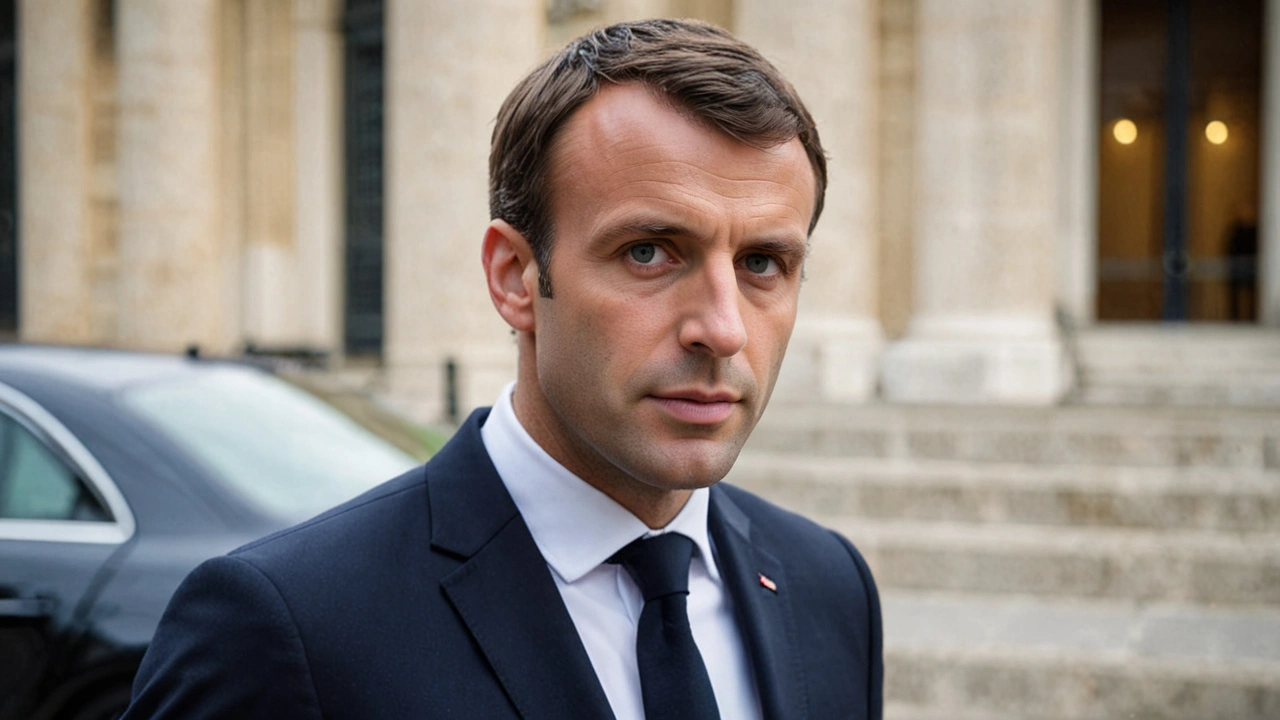
Conclusion
In summary, President Macron's acceptance of Prime Minister Gabriel Attal's resignation marks a pivotal moment in French politics. The inconclusive snap election has left the nation grappling with a fractured National Assembly and the daunting task of coalition-building. As the caretaker government handles day-to-day affairs, including preparations for the Paris Olympics, the focus now shifts to the efforts to form a new, stable government. The road ahead is fraught with challenges, and the coming weeks will be crucial in determining the future political landscape of France.
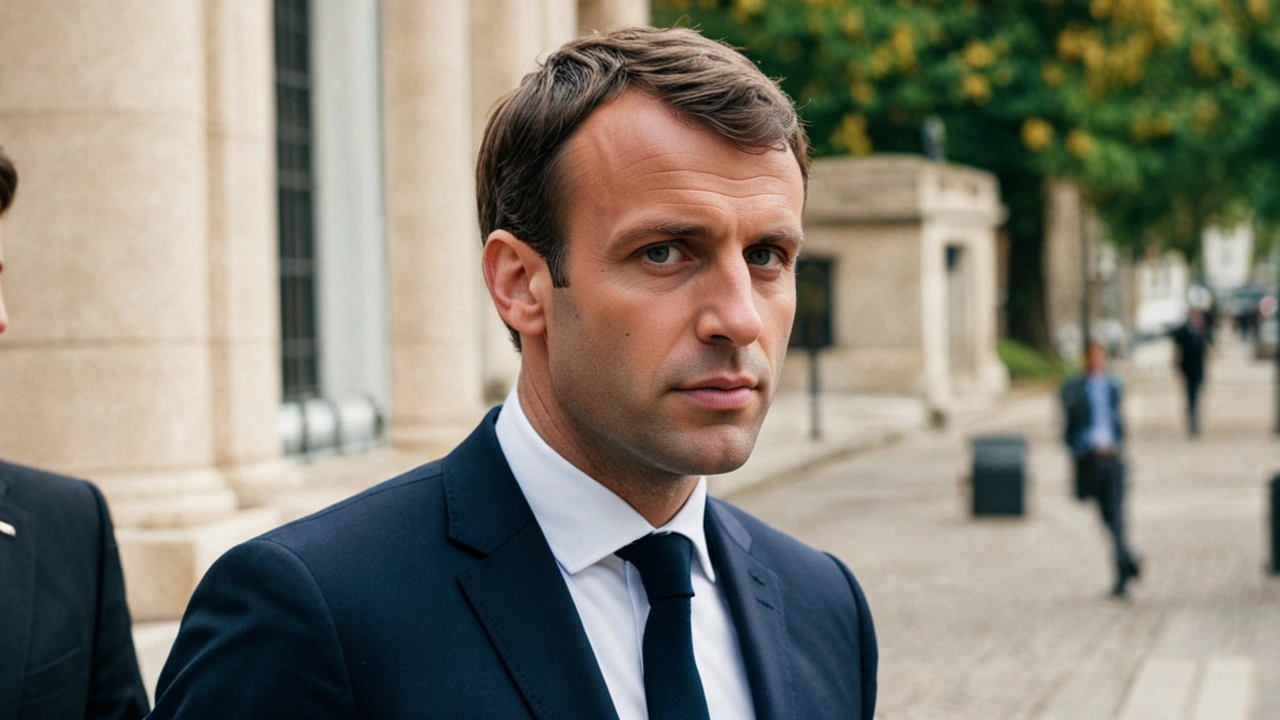
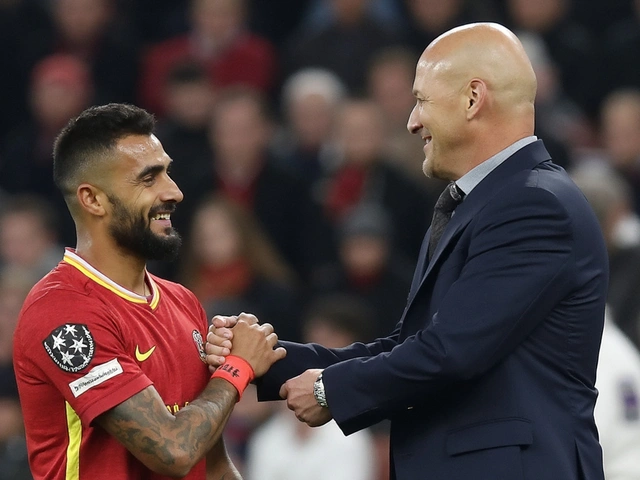
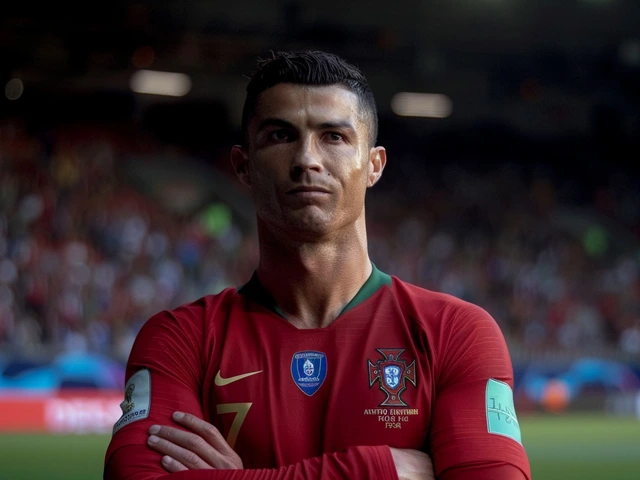

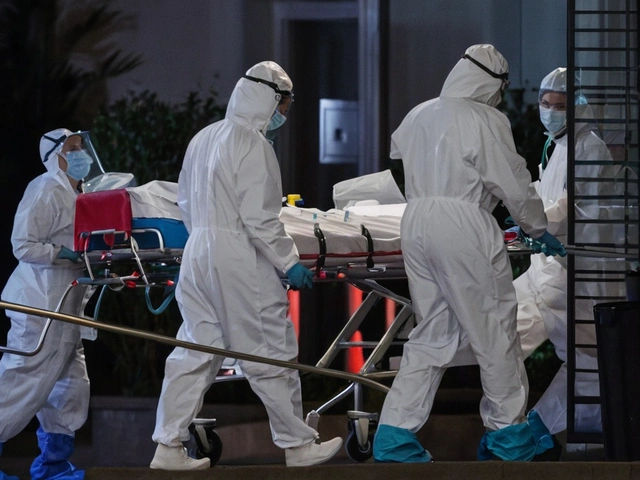

20 Comments
Aryan Sharma
July 19, 2024 AT 06:51 AMthis is all fake news bro. Macron's just playing mind games so he can stay in power forever. the real power is with the deep state and the EU puppet masters. they don't want France to be free.
yash killer
July 20, 2024 AT 22:44 PMFrance is dead long live the revolution the far right is the only thing left standing and they know it
Ankit khare
July 22, 2024 AT 11:32 AMif you think this is bad you should see what happened in 2017 when the same idiots were in charge and now we got this mess i told you all this would happen
Sagar Jadav
July 24, 2024 AT 03:28 AMThis is why we need strong leadership.
Sonia Renthlei
July 25, 2024 AT 02:43 AMIt's heartbreaking to see how deeply divided France is right now. I keep thinking about how many ordinary people are just trying to get through their days while politicians play chess with their futures. The New Popular Front has so much potential if they could just put aside their egos and focus on what matters - housing, healthcare, climate. But instead, they're stuck in endless meetings arguing over who gets to say what first. And meanwhile, the far right is gaining ground not because they have good ideas, but because people are desperate. I wish someone could just sit all these leaders down and say: ‘Look, your country is not a game board. People are scared. They need hope, not more infighting.’
Chirag Yadav
July 26, 2024 AT 23:32 PMHonestly i think this is a chance for france to reset. the old systems are broken and maybe this chaos is exactly what's needed to build something better. i'm not saying it's easy but if they can find common ground between the center and the left without letting the far right in... it could be historic. i'm rooting for them even if i'm thousands of miles away.
MANJUNATH JOGI
July 28, 2024 AT 08:17 AMThe structural fragility of the French Fifth Republic is being exposed here - the presidential system's inherent tension with proportional representation has reached its breaking point. The 193-164-143 seat distribution is a textbook case of fragmented multiparty dynamics without a clear mechanism for coalition consolidation. Macron's caretaker retention strategy, while constitutionally valid, exacerbates democratic legitimacy deficits. The real test will be whether the Assembly can institutionalize a new governing protocol - perhaps via a grand coalition with rotating premiership - to prevent future deadlocks. This isn't just about France; it's a stress test for liberal democracy in the age of polarization.
Dr. Dhanada Kulkarni
July 29, 2024 AT 07:07 AMI truly believe that with patience and compassion, France can rise through this. Every great nation has faced moments like this - and what matters is how they respond with integrity. The people of France are resilient. They’ve weathered wars, revolutions, and economic crises. This too shall pass, and when it does, they’ll come out stronger, wiser, and more united than ever. Keep believing in the light, even when the shadows feel long.
Jason Lo
July 29, 2024 AT 21:21 PMwow so the french are just as clueless as the americans now. i told you all this would happen when you let the left take over the schools. now they can't even pick a prime minister. classic
saurabh vishwakarma
July 30, 2024 AT 01:11 AMLet me tell you something. This isn’t politics. This is theater. A grand opera written by billionaires who own the media and the banks. The people? They’re just extras. The Olympics? A distraction. A glittering facade to hide the rot. And don’t even get me started on how Macron’s using the games to cling to power. He’s not protecting stability - he’s protecting his legacy. And the worst part? Half the country knows it… and still cheers.
UMESH DEVADIGA
July 30, 2024 AT 15:19 PMi swear every time i see a french politician open their mouth i feel like my soul is being sucked out. they talk and talk and talk but nothing ever changes. they just want to look important while the country burns. why do i even care? i'm not even french. but i feel it. like a headache that won't go away.
Roshini Kumar
July 31, 2024 AT 12:24 PMoh wow the far right got 143 seats? shocking. next you'll tell me the sun rises in the east and water is wet. someone call the news. i think the world just ended.
Siddhesh Salgaonkar
July 31, 2024 AT 19:26 PMfrance is a mess 😭 but hey at least the baguettes are still good 🥖😂 someone save them before they vote for a dictator or something. i mean cmon this is like watching a sitcom written by a confused owl
Arjun Singh
August 1, 2024 AT 09:26 AMthe NFP is a dumpster fire with a manifesto. they can't even agree on coffee orders, let alone governance. and macron's playing 4d chess while the country's on fire. this isn't democracy - it's a hostage situation with parliamentary procedures.
musa dogan
August 1, 2024 AT 10:40 AMFrance? More like Franchaise. They think they’re the center of the world but they can’t even form a government without crying. Meanwhile, Nigeria? We just elect our president and move on. No drama. No drama at all. Just power, money, and a little bit of chaos - but we own it.
Mark Dodak
August 2, 2024 AT 12:17 PMI’ve been watching this unfold from afar, and honestly, it’s a mirror for a lot of democracies right now. We’re all dealing with polarization, distrust, and institutions that feel too slow to adapt. France’s situation isn’t unique - it’s just more visible. But I think there’s a quiet hope here too. The fact that people are still trying to build coalitions, even when it’s messy, means the system hasn’t completely broken. Maybe the answer isn’t a single party winning, but a new way of governing together - imperfect, but real.
Sharad Karande
August 4, 2024 AT 07:12 AMThe constitutional framework of the Fifth Republic was designed for a bipolar system, not the current tripartite fragmentation. The absence of a runoff mechanism for prime ministerial selection, combined with the president’s discretionary power to appoint caretakers, creates systemic vulnerabilities. The upcoming speaker election will serve as a litmus test for inter-party coordination. If the NFP fails to coalesce around a candidate despite being the largest bloc, it signals a structural failure of ideological alignment - not merely tactical disagreement. The EU may need to intervene diplomatically to prevent institutional collapse.
Stephanie Reed
August 5, 2024 AT 03:05 AMI really hope France finds a way forward. I know it’s frustrating to watch, but I believe in people - in their ability to listen, compromise, and rebuild. It’s not going to be quick or easy, but if they can focus on what unites them - their love for their country, their desire for dignity, their hope for their children - then maybe this chaos can become a catalyst for something better. I’m sending good energy across the Atlantic.
Derek Pholms
August 6, 2024 AT 07:05 AMFunny how the same people who scream about democracy when it doesn’t go their way suddenly become constitutional scholars when it does. Macron’s move is legal, sure - but legality doesn’t equal legitimacy. The real question isn’t whether he can do this - it’s whether he should. And if the people stop believing the system works, then none of the rules matter anymore. That’s the real crisis here - not the seats, not the parties. The trust is gone.
Devendra Singh
August 7, 2024 AT 23:11 PMHonestly, the fact that you’re even discussing this as if it’s a normal political crisis shows how little you understand. The NFP is a coalition of anarchists with a printing press. The far right is a populist cult. And Macron? He’s a technocrat who thinks charisma is a policy tool. None of them deserve to govern. The only solution is a national emergency council - appointed by the military, the church, and the top 10 CEOs. They’d fix this in a week. But no, we’d rather watch the drama.